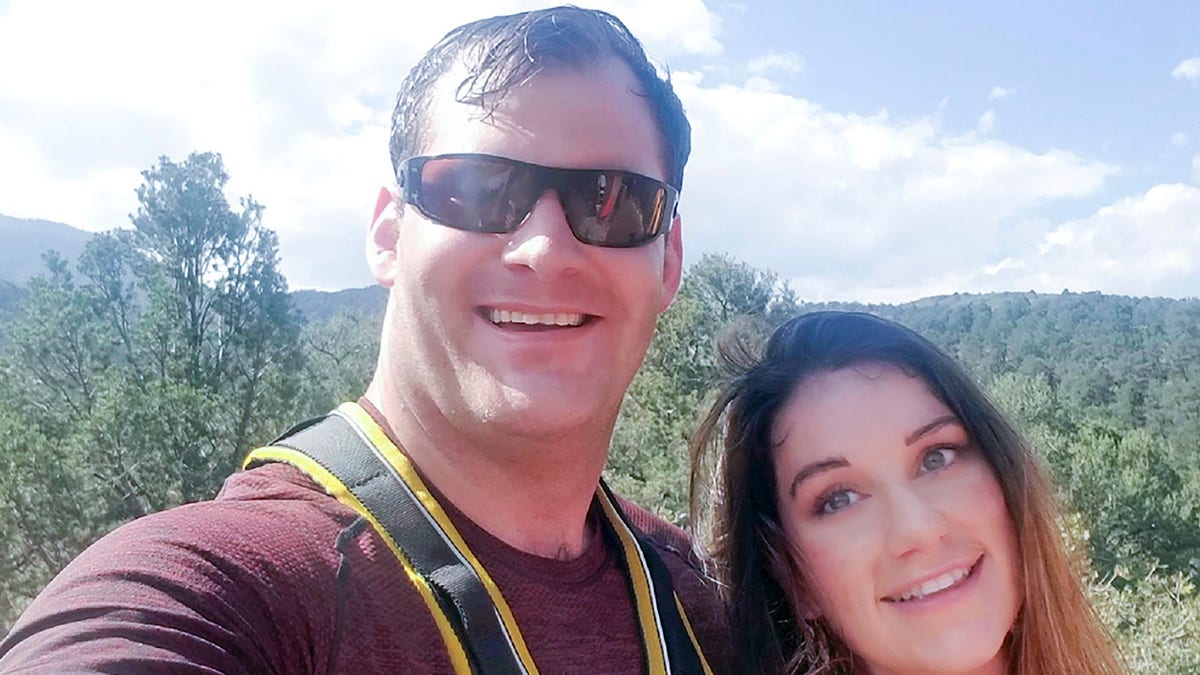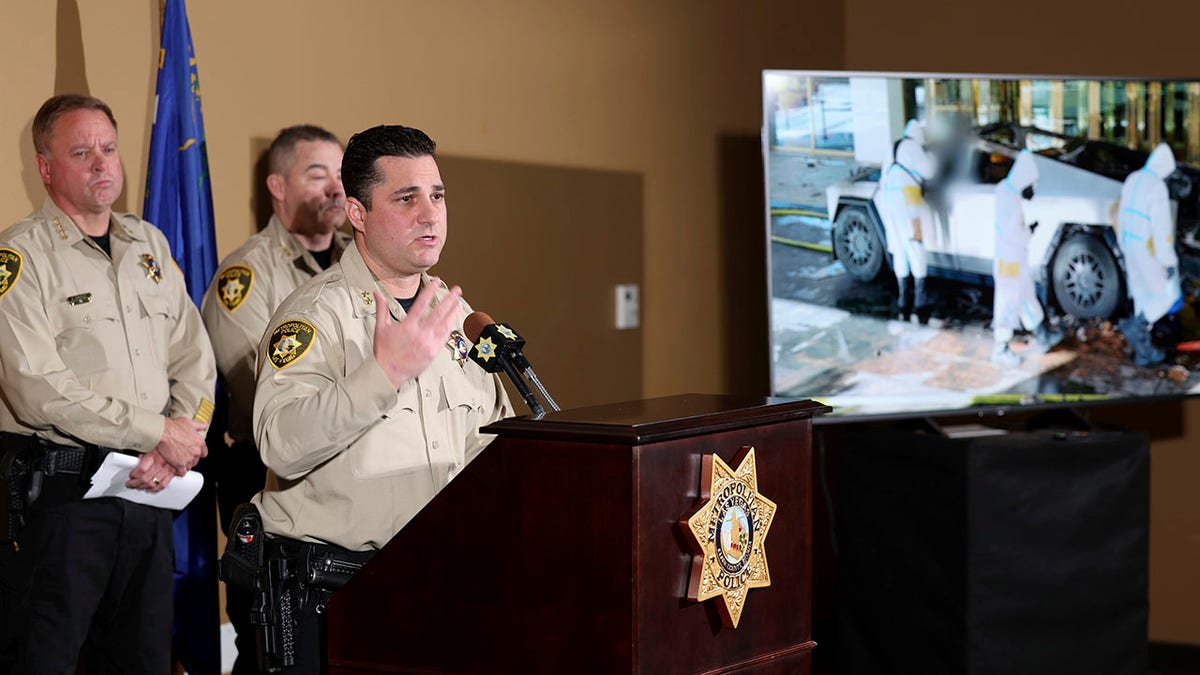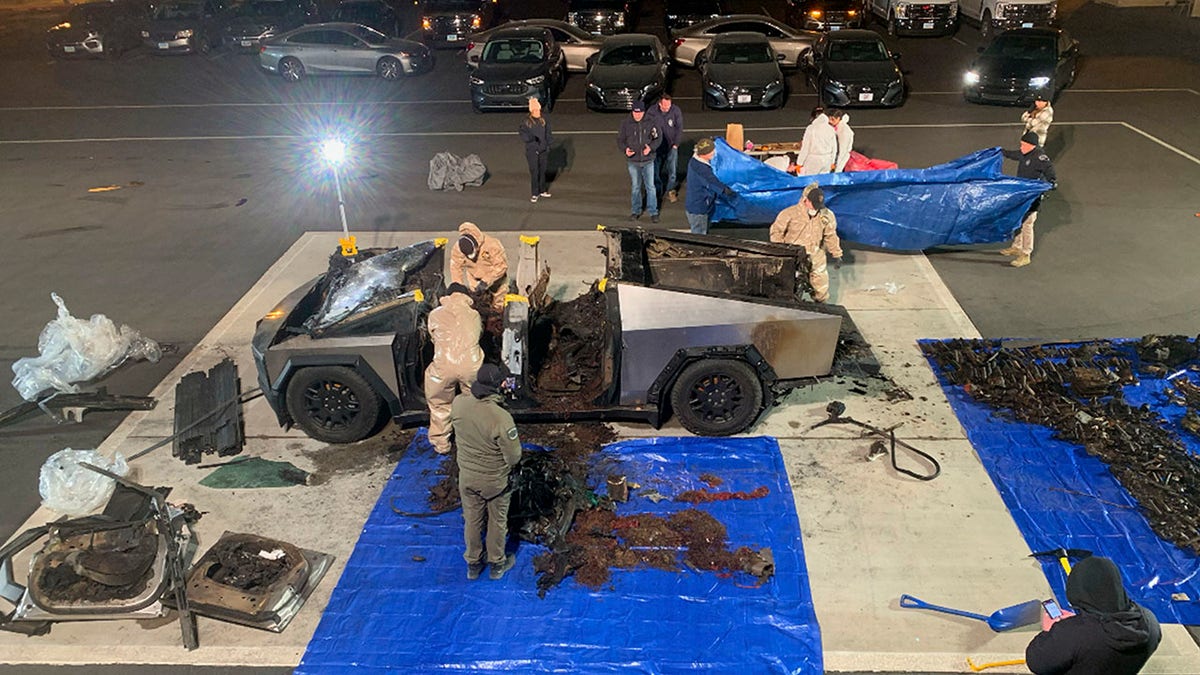FBI verifies Tesla Cybertruck subject emailed podcaster, says he used ChatGPT to plan Trump hotel explosion
The FBI on Tuesday said an email that appeared to have been sent from the Las Vegas Cybertruck explosion subject Matthew Livelsberger to prominent podcaster Shawn Ryan was indeed confirmed to have come from Livelsberger.
At a press conference, Special Agent in Charge of the FBI in Las Vegas Spencer Evans clarified that law enforcement has not verified the actual content of Livelsberger’s email, just that he sent it.
“We have confirmed the document that he sent to the podcast. We know that he was the one that sent that document. That’s correct,” Evans told reporters.
“We’re not speaking to the content,” Evans added. “I mean, he’s talking about, feeling that he was, you know, surveiled, guilt. You can tell that there’s, you know, some anguish there, some frustration with the government.”

“I mean, there’s a whole host of things. So we haven’t gotten into, you know, what’s legitimate, what’s not,” Evans said. “The only thing that out of an abundance of caution, inasmuch as there’s Department of Defense equities that speak to sources and methods or something else that would endanger folks overseas. That’s not being released. But beyond that, we haven’t vetted any of his writings to determine, you know, what’s legitimate and what was in his own head.”
Three days earlier, Ryan, a former Navy SEAL and CIA agent, published an episode of his podcast “The Shawn Ryan Show” interviewing Sam Shoemate.
Shoemate, a retired U.S. Army intelligence officer who has built up an online following around military content, said he received an email claiming to be from Livelsberger before the New Year’s Day explosion outside President-elect Donald Trump’s hotel in Las Vegas, and, therefore, before authorities publicly identified Livelsberger as the subject whose charred remains were found inside the Tesla Cybertruck.
Shoemate read the email on the podcast. In it, Livelsberger theorized that the purported drone sightings in New Jersey were actually Chinese “gravitic propulsion systems,” posing an extreme national security threat.
He also brought attention to 2019 U.S. airstrikes in Afghanistan that allegedly caused significant civilian casualties, warning of the risk of another world war.
Livelsberger, an Army Green Beret who deployed twice to Afghanistan and lived in Colorado Springs, Colorado, expressed concern that he was being tracked by the federal government and asked to be put in touch with Shawn’s podcast.
Shawn paused the interview to check his inbox to see if Livelsberger wrote to the show as well. Shawn said he did and then read the email from Livelsberger.
Livelsberger wanted Shawn to interview him in person or over Zoom to “blow the whistle on our activities in a certain place.” He said he could do so on Dec. 31, 2024, but afterward he’d “be leaving.”
Shawn and Shoemate said they sent the emails to the FBI.
Asked why the information sent to the podcaster mattered to law enforcement’s investigation, Las Vegas Metropolitan Police Sheriff Kevin McMahill said Tuesday the email speaks to Livelsberger’s mental status and possible intent.
“We’re very well aware of all of the things that are out there on the internet that are being said about what occurred, what didn’t occur,” McMahill said. “And we’re working very hard to answer every single question that we have.”
The FBI and Las Vegas police said Tuesday that further evidence supported that Livelsberger died by suicide from shooting himself and was inside the vehicle when it exploded. The podcast speculated otherwise.

Authorities also described at the press conference how Livelsberger allegedly used generative artificial intelligence, including ChatGPT, to help plan the explosion.
“I think this is the first incident that I’m aware of on U.S. soil where ChatGPT is utilized to help an individual build a particular device,” McMahill said.
“So, absolutely, it’s a concerning moment for us. But it’s also, it goes back to my last point, that it’s instructive to us,” the sheriff added. “We have been leaning forward in releasing every single document that we possibly can, and we will do that as long as it doesn’t endanger anybody’s lives moving forward. So we’ll continue to do that. But yes, 100%. I think the ChatGPT was a game changer for us here.”
Authorities displayed ChatGPT entries at the press conference that Livelsberger allegedly made to determine how many explosives were needed.
In one set of questions, Assistant Sheriff Dori Koren explained, Livelsberger allegedly asked where to buy fireworks, how much to buy and what the equivalence would be to TNT and other types of explosive materials. Livelsberger’s other questions focused on the velocity of the fire of the bullet fired from the firearm, and determining whether that would ignite the explosives, Koren said. Livelsberger also allegedly askedhow to buy a phone without providing any personal identifying information.
In an emailed statement, OpenAI said it was committed to seeing its tools used “responsibly” and that they’re designed to refuse harmful instructions.

“In this case, ChatGPT responded with information already publicly available on the internet and provided warnings against harmful or illegal activities. We’re working with law enforcement to support their investigation,” the statement said.
The explosion caused minor injuries to seven people but virtually no damage to the Trump International Hotel. Authorities said that Livelsberger acted alone.
At the press conference, authorities also said they uncovered a six-page document, or manifesto, that they have not yet released because they’re working with Defense Department officials since some of the material could be classified.
They added that they still have to review contents on a laptop, mobile phone and smartwatch. Among the items they did release Tuesday was a journal Livelsberger kept titled “surveillance” or “surveil” log. It showed that he believed he was being tracked by law enforcement, but he had no criminal record and was not on the police department or the FBI’s “radar,” McMahill said.
Livelsberger’s letters touched on political grievances, societal problems and domestic and international issues, including the war in Ukraine. He wrote that the U.S. was “terminally ill and headed toward collapse.”
Investigators had been trying to determine if Livelsberger wanted to make a political point, given the Tesla and the hotel bearing the president-elect’s name.
CLICK HERE TO GET THE FOX NEWS APP
Livelsberger harbored no ill will toward Trump, law enforcement officials said. In one of the notes he left, he said the country needed to “rally around” him and Tesla CEO Elon Musk.
The Associated Press contributed to this report.
